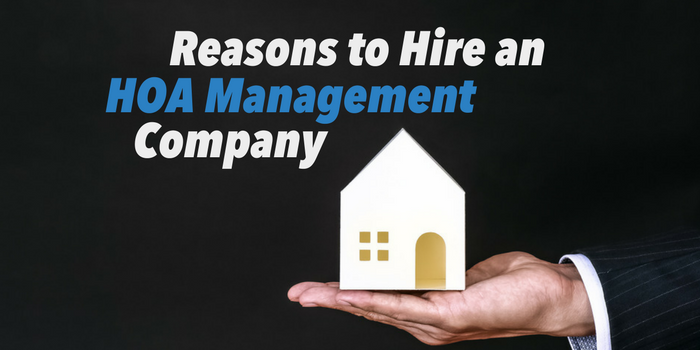Achieving Success Through Collaborative Austin HOA Management Initiatives
Achieving Success Through Collaborative Austin HOA Management Initiatives
Blog Article
The Essential Role of HOA Administration in Upholding Neighborhood Specifications and Rules
Homeowners Organizations (HOAs) offer an essential feature in preserving neighborhood requirements and guidelines, working as the guardian of shared values and looks within areas. Their responsibilities extend beyond simple enforcement; they cultivate a sense of belonging and liability amongst residents. By meticulously managing standards and attending to non-compliance, HOAs not only protect residential property values but also grow an atmosphere where communication and collaboration can prosper. The effectiveness of these monitoring methods raises pertinent concerns about administration, resident interaction, and the equilibrium between law and personal liberty. What ramifications do these characteristics hold for the future of neighborhood living?
Significance of HOA Administration
The importance of effective HOA administration can not be overemphasized, as it plays a vital role in preserving the total quality and charm of an area. Homeowners' Associations (HOAs) function as the backbone of domestic communities, giving structure and organization that promotes an unified living setting. Through effective administration, HOAs make certain that area standards are supported, consequently shielding building values and improving citizens' top quality of life.
A well-managed HOA can facilitate open communication among residents, address grievances quickly, and produce a sense of belonging. It develops policies and standards that show the neighborhood's values, making sure constant maintenance of shared areas and facilities. Furthermore, efficient administration aids in financial planning and source appropriation, which is essential for the sustainability of community tasks and upkeep.
In addition, a reliable HOA can advertise neighborhood interaction by promoting and arranging occasions partnership among residents - austin hoa management. This not only enhances connections yet additionally urges energetic involvement in decision-making processes. Ultimately, reliable HOA management is important for growing a vivid, eye-catching, and natural neighborhood that fulfills the requirements and assumptions of its homeowners
Key Obligations of HOAs
Regularly, Homeowners' Organizations (HOAs) think a variety of crucial obligations that are crucial for the smooth operation and upkeep of a neighborhood. Among the main duties of HOAs is to take care of the monetary aspects of the area, including budgeting, accumulating dues, and keeping reserve funds for future repair services and enhancements. This financial oversight ensures that the neighborhood remains well-kept and lasting.
Additionally, HOAs are accountable for keeping common locations, such as parks, pools, and landscaping. This involves routine maintenance, repair work, and enhancements to make sure these spaces remain practical and attractive for residents. Interaction is also an essential facet of HOA duties; they should maintain homeowners educated regarding neighborhood news, upcoming meetings, and modifications to guidelines or policies.

Moreover, HOAs usually facilitate community events and tasks, promoting a sense of belonging and engagement amongst locals. They may likewise deal with management tasks, including record-keeping and compliance with state and neighborhood policies. With these responsibilities, HOAs play an important function in promoting a natural and well-managed neighborhood, eventually enhancing property worths and residents' high quality of life.

Enforcing Neighborhood Requirements
To maintain an unified living setting, HOAs play a crucial function in enforcing area standards. These requirements, commonly outlined in controling papers such as the Statement of Constraints, problems, and covenants (CC&R s), are developed to protect residential property values, make sure visual uniformity, and advertise a sense of community among locals. HOAs have to ensure that all home owners follow these standards to produce a well-kept area.
Enforcement devices can differ, but typically involve routine inspections of residential or commercial properties, communication with homeowners regarding offenses, and the charge of fines for non-compliance. Such procedures might include penalties, ask for restorative activity, or, in extreme situations, lawful procedures. An aggressive strategy to enforcement not just discourages prospective more helpful hints violations however also cultivates a society of liability amongst locals.
Additionally, transparency in the enforcement procedure is necessary. HOAs must clearly connect standards, expectations, and effects to all home owners. This clarity aids to mitigate misconceptions and makes certain that homeowners know their responsibilities. Eventually, efficient enforcement of community requirements by HOAs is crucial for keeping the general high quality of life within the neighborhood and supporting the values that homeowners have actually spent in their homes.
Dispute Resolution Strategies
Effective conflict resolution methods are vital for preserving a tranquil and participating neighborhood within homeowners' organizations look at more info (HOAs) HOAs usually act as the very first line of protection in addressing disputes that develop among locals. Carrying out proactive interaction practices is critical; this consists of developing clear channels for homeowners to voice issues and complaints. Normal conferences and community forums can facilitate open discussion, enabling members to share their opinions and look for good understanding.
Furthermore, arbitration plays a significant duty in settling problems (austin hoa management). Neutral third-party conciliators can assist facilitate discussions and guide events towards a collaborative option. This method emphasizes compromise and promotes a sense of area, rather than enabling more information disagreements to escalate into controversial confrontations
Furthermore, establishing and implementing a clear collection of rules and procedures for handling problems is important. These standards should be interacted efficiently to all homeowners, making certain everyone understands the process for seeking and lodging grievances resolution. Providing conflict resolution training for board participants and area leaders furnishes them with the needed skills to manage disputes effectively, making certain that problems are dealt with agreeably and in accordance with the neighborhood's guidelines and standards.
Enhancing Building Worths
Preserving harmonious relationships amongst homeowners not only fosters a feeling of neighborhood but additionally plays a substantial function in enhancing home values within homeowners' organizations (HOAs) Effective HOA administration makes certain that area standards and regulations are maintained, producing a setting where home upkeep is prioritized. Properly maintained usual locations, adherence to architectural standards, and timely enforcement of rules add to an enticing community that brings in prospective buyers.

In addition, normal upkeep and enhancement tasks, such as landscape design and center upgrades, show positively on home values. HOAs that successfully handle spending plans to fund these initiatives demonstrate a commitment to long-term worth preservation.
Inevitably, an HOA that prioritizes community connections and residential property requirements creates a preferable living atmosphere. This not just benefits present residents but also positions the neighborhood favorably in the property market, ensuring that property values remain durable and eye-catching to future homeowners.
Final Thought
In final thought, HOA monitoring is necessary for preserving neighborhood criteria and guidelines, consequently promoting an unified living environment. Through the enforcement of guidelines, routine residential or commercial property inspections, and reliable dispute resolution approaches, HOAs play a critical function in improving home worths and promoting openness among homeowners. The proactive actions executed by HOAs not only shield the visual stability of areas yet additionally add to a natural environment that supports open interaction and collaboration among all citizens.
With efficient management, HOAs make sure that neighborhood criteria are upheld, therefore protecting residential property values and enhancing locals' high quality of life.
Via these responsibilities, HOAs play an essential duty in advertising a well-managed and natural area, ultimately enhancing residential property values and homeowners' quality of life.
Eventually, efficient enforcement of neighborhood standards by HOAs is essential for maintaining the overall top quality of life within the area and upholding the values that citizens have spent in their homes.
Offering dispute resolution training for board participants and community leaders furnishes them with the needed skills to take care of disagreements successfully, making sure that disputes are resolved agreeably and in accordance with the neighborhood's standards and policies.
Keeping harmonious relationships among locals not just promotes a feeling of area however additionally plays a substantial function in boosting building worths within property owners' organizations (HOAs)
Report this page